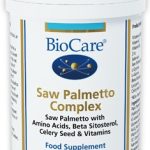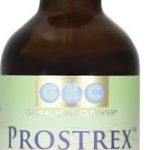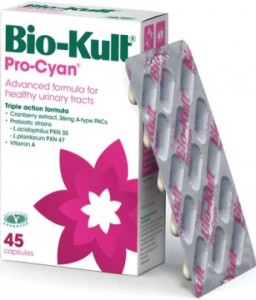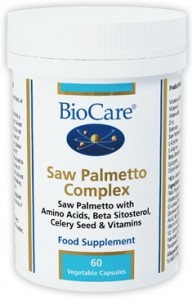Whether you’re a man or a woman, you’re bound to have heard of the prostate – even though it’s a gland that only occurs in the male body. Shaped and sized like a walnut, it’s situated between the bladder and the penis and plays a pivotal role in successful sexual activity for a man, being that it produces a proportion of the fluid in semen; specifically, this fluid nourishes and protects sperm.
By and large, though, the prostate has made a name for itself over recent decades because of what can go wrong with it; as men get older the prostate tends to enlarge and, although in two-thirds of those aged over 50 this isn’t an issue, in doing so it can press into the tube that transports urine from the bladder, thus causing urinary problems (benign prostate enlargement). It may also swell due to an infection (prostatitis) or, as is becoming ever more widely known, could be the source of cancer developing in the body. In fact, prostate cancer is the most common form of the disease among UK men – more than 47,000 men in Britain are diagnosed each year and more than 11,000 die from it annually1. Those statistics sound stark – let’s not pretend they don’t – but, if it’s diagnosed early, survival from prostate cancer is more than likely; 90% of those diagnosed early live at least five more years and 65-90% live at least 10 more years2.
Considering those facts then, it becomes obvious it’s imperative for men to check their prostate regularly (feeling for any potential cancerous lumps) and to see their doctor as soon as possible if they think they’ve found anything. That said; every man should also seek to look after their prostate, hopefully aiding the body to ensure cancer and other ailments are kept at bay from the gland. And a highly advisable way to do this is through diet.
Adopting a balanced diet
Just to be clear, sensible, good nutrition on its own is not going to prevent prostate problems, but the chances are adopting a balanced diet that’s nutrient-rich and full of heart-healthy foods in place of those sugary, saturate fat-packed snacks will reduce the risk of such problems taking root and developing2. So, what should such a balanced diet comprise? What are particularly good foods for prostate health? Here are some suggestions:
- Berries – what recommends the likes of strawberries, raspberries and blackberries is that they’re full to the brim with Vitamin C and antioxidants. So what, you may ask? Well, because antioxidants battle and kill off free radicals, they reduce cancer risk as free radicals are harmful molecules that like nothing more than attacking healthy cells, leaving them vulnerable to cancer3. It’s also believed Vitamin C may be particularly effective in reducing prostate swelling and promoting urination. Also for Vitamin C, you might turn to broccoli, cantaloupe, citrus fruits, mangoes and spinach.
- Fatty fish – not only do the Omega-3 fatty acids in certain fish (like anchovies, herring, sardines, tuna and wild salmon) do great work in lowering cholesterol levels and high blood pressure and reduce the chances of heart attack, they can also increase prostate health4 and lower the risk of prostate cancer5 – it’s thought this may be because they offer great anti-inflammatory benefits, thus inhibiting potential tumour growth.
- Brazil nuts – nuts in general contain lots of healthy fats and are good for brain health; however, Brazil nuts are specifically advisable for prostate health owing to their high levels of selenium, according to research6. Additionally, almonds, pecans and walnuts are all thought to be good for men’s general health.
- Beans, chia and hemp seeds – fantastic for your diet’s protein needs; beans, chia and hemp seeds may promote prostate health owing to all the fibre they contain7 (one cup of such beans comprises around 15 grams of protein and 15 grams of fibre). Note that hemps seeds also contain essential amino acids.
- Green tea – like many nuts, green tea is thought to improve memory and attention span and like fatty fish it’s thought to be good for lowering cholesterol, but (like every food type in this list), evidence suggests it may also promote prostate health; in particular, helping to protect against prostate cancer8.
- Watermelon – free of saturate fats and sodium and bursting with Vitamins A and C, this colourful, lively food is also an excellent source of the handy antioxidant lycopene; a chemical that not only gives this fruit (and tomatoes) their colour but may well reduce the risk of developing prostate cancer9. Estimates suggest a cup-and-a-half of watermelon comprises between 9-12 milligrams of lycopene.
Prostate supplements
Undoubtedly then, adjusting your diet and including in it the above, wonderfully healthy foods could do your prostate health an awful lot of good. That said, in today’s world it’s not always as easy done as it is said to revolutionise one’s diet and keep it on ‘the straight and narrow’. Some of the healthiest foods aren’t always that simple to come by and, depending on other health issues, certain foods may even be off-limits for some individuals.
In which case, to reduce the risks of prostate-related ailments, you may wish to embellish an improved diet via natural supplementation. Do check out the ‘Prostate Health’ section of our website – where you’ll find a good number of supplements (including the following) available to buy through us at The Finchley Clinic:
Saw Palmetto Complex – formerly known as Prostate Complex, this supplement comprises a synergistic offering of ingredients, specifically blended together to support the healthy functioning of the prostate gland and urinary tract; contains saw palmetto, lycopene, zinc, selenium, celery seed, beta sitosterol, l-glycine, l-alanine and Vitamins A and B6.
Prostrex Natural Prostate Balance Supplement – a combination of premium herbs, designed to encourage a healthy prostate, support normal urinary function and provide nutrition for ageing; ingredients include organic forms of turmeric, pumpkin seed, smartweed, fulvic acid, stinging nettle and saw palmetto.
Maca – a traditional Peruvian herb that may protect against prostate cancer (and help promote all-round prostate health) owing to its high concentration of glucosinolate, a compound known to contain anti-cancer properties; Maca’s also reputed for combatting fatigue, increasing stamina and libido, supporting the adrenal glands and aiding hormonal system balance.
References:
1. ‘Know your prostate’. NHS Choices. http://www.nhs.uk/Livewell/Prostatehealth/Pages/knowyourprostate.aspx. Last reviewed: 20 Nov 2016.
2. George N. ‘6 Superfoods for a Healthy Prostate’. Everydayhealth.com. https://www.everydayhealth.com/pictures/superfoods-for-a-healthy-prostate. Last updated: 19 Feb 2015.
3. ‘Antioxidants and Cancer Prevention’. Cancer.gov. https://www.cancer.gov/about-cancer/causes-prevention/risk/diet/antioxidants-fact-sheet. Last reviewed: 16 Jan 2014.
4. Dewailly E., Mulvad G., Sloth Pedersen H., Hansen J. C., Behrendt N. and Hart Hansen J. P. ‘Inuit are protected against prostate cancer’. Cancer Epidemiol Biomarkers Prev. 2003 Sep; 12 (9): 926-7.
5. Reese A. C., Fradet V. and Witte J. S. ‘Omega-3 fatty acids, genetic variants in COX-2 and prostate cancer.’ J Nutrigenet Nutrigenomics. 2009; 2 (3): 149-58. doi: 10.1159/000235565. Epub 2009 Sep 23.
6. Kumi-Diaka J., Merchant K., Haces A., Hormann V. and Johnson M. ‘Genistein-Selenium Combination Induces Growth Arrest in Prostate Cancer Cells’. Journal of Medicinal Food. July 2010, 13 (4): 842-850. https://doi.org/10.1089/jmf.2009.0199.
7. Raina K., Ravichandran K., Rajamanickam S., Huber K. M., Serkova N. J. and Agarwal R. ‘Inositol Hexaphosphate Inhibits Tumor Growth, Vascularity, and Metabolism in TRAMP Mice: A Multiparametric Magnetic Resonance Study’. Cancer Prev Res. 2013 Jan. 6 (1); 40–50. doi:10.1158/1940-6207.CAPR-12-0387.
8. Zheng J., Yang B., Huang T., Yu Y., Yang J. and Li D. ‘Green tea and black tea consumption and prostate cancer risk: an exploratory meta-analysis of observational studies’. Nutr Cancer. 2011; 63 (5): 663-72. doi: 10.1080/01635581.2011.570895. Epub 2011 Jun 11.
9. Soares N. C., Teodoro A. J., Oliveira F. L., Santos C. A., Takiya C. M., Junior O. S., Bianco M., Junior A. P., Nasciutti L. E., Ferreira L. B. et al. ‘Influence of lycopene on cell viability, cell cycle, and apoptosis of human prostate cancer and benign hyperplastic cells’. Nutr. Cancer. 2013. 65: 1076–1085.





